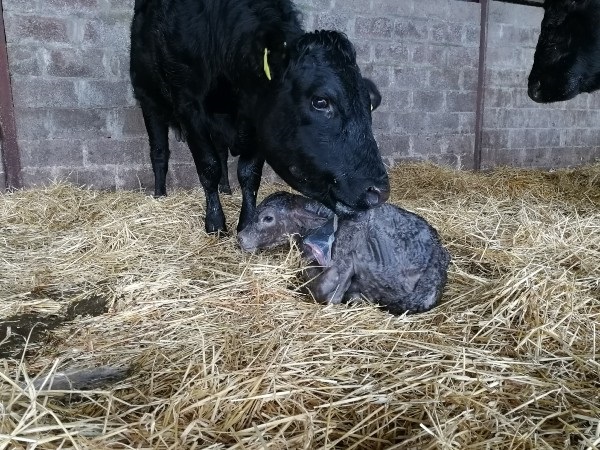Colostrum – Are Your Calves Getting Enough??
6 March 2020Calves are born without any immunity and so failure to uptake adequate antibodies from colostrum will leave them at high risk of infections.
Calves with inadequate colostrum intake are 2.5 times more likely to die in the first four months of life.
A recent study by The Royal (Dick) School of Veterinary Studies, Roslin Institute and AHDB involving 86 suckler farms highlighted that on 25 of these farms 20% of the calves did not get sufficient transfer of immunity through colostrum.
The main risk factors identified included:
- Being male
- Difficult calvings
- Bottle / tube fed artificial colostrum
- Being a twin
- Dam being a heifer
- Assistance to find teats
- Bottle / tube fed dams’ colostrum
Of the above, the one factor of particular interest is the use of artificial colostrum. The main reason for the increased risk of inadequate transfer of immunity using artificial colostrum is that the level of immunoglobulins present in these products is considerably lower than what a cow or heifer would produce. The dam’s colostrum will always be the best for the calf, however, although these products are better than nothing it is worthwhile checking the content of the product if possible.
The main tips to ensure that calves are getting enough colostrum are:
- Feed all calves born following assisted calvings or that have a weak suck reflex at 10 minutes old with three to four litres of colostrum, ideally from the dam, within 2 hours of birth.
- Consider harvesting any spare colostrum and freezing. But only do this if you can do so safely. Your own safety should always be the priority.
- Test the quality of colostrum – discuss with your vet.
- Discuss with your vet and consider any disease implications before using spare colostrum from other farms.
Lesley Wylie, lesley.wylie@sac.co.uk
Sign up to the FAS newsletter
Receive updates on news, events and publications from Scotland’s Farm Advisory Service

